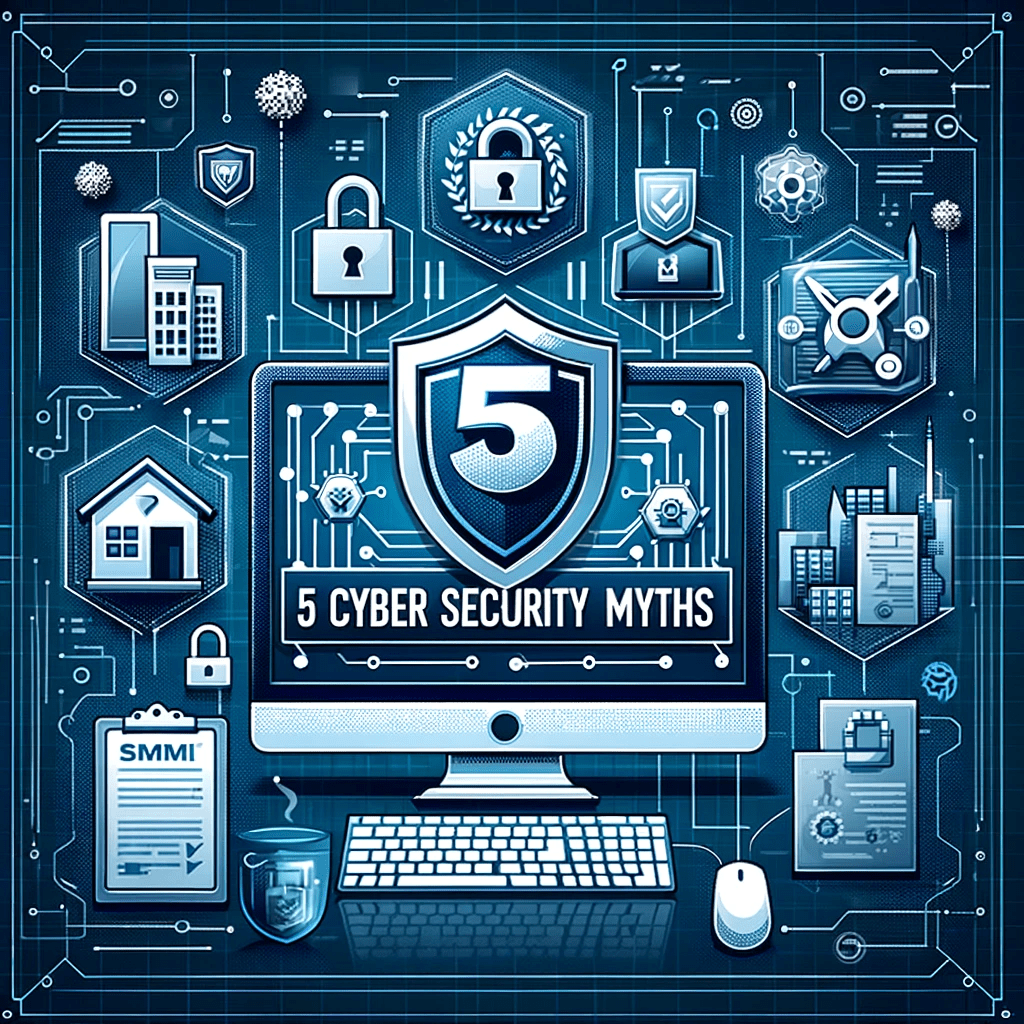5 Common Cybersecurity Myths for SMBs Debunked

In the rapidly evolving world of information technology, cybersecurity remains a critical concern, especially for small and medium-sized businesses (SMBs). However, several myths surround cybersecurity in the SMB sector, often leading to inadequate protection strategies. Here, we debunk five common myths to help SMBs navigate the cybersecurity landscape more effectively.
Myth 1: Small Businesses Aren’t Targeted by Hackers
Reality: Contrary to popular belief, SMBs are frequently targeted by cybercriminals. Small businesses often have less stringent security measures, making them attractive targets. In fact, data suggests that a significant percentage of cyber attacks are aimed at small businesses. It’s crucial for SMBs to recognize their risk and invest in robust cybersecurity defenses.
Myth 2: Basic Antivirus Software is Sufficient Protection
Reality: While antivirus software is an essential component of cybersecurity, it’s not a foolproof solution. Cyber threats have evolved to be more sophisticated, and relying solely on antivirus software leaves businesses vulnerable to various other attack vectors like phishing, ransomware, and advanced persistent threats. Comprehensive security strategies must include firewalls, intrusion detection systems, and regular security audits.
Myth 3: Cybersecurity is Too Expensive for SMBs
Reality: Many SMBs operate under the misconception that cybersecurity is prohibitively expensive, reserved only for larger corporations. However, the cost of implementing effective cybersecurity measures is often less than the potential losses from a data breach. Solutions tailored for SMBs are available, balancing cost and security needs.
Myth 4: Strong Passwords are Enough to Keep Your Business Safe
Reality: While strong passwords are an essential first line of defense, they’re not infallible. Cyber attackers employ various techniques, such as brute force attacks and social engineering, to bypass password protections. Businesses should implement additional security measures like multi-factor authentication (MFA) and educate employees about secure password practices.
Myth 5: Cybersecurity is Solely an IT Department Concern
Reality: Cybersecurity is a company-wide responsibility. Human error is one of the leading causes of security breaches. Training and educating all staff members about common cyber threats and safe online practices are as important as having a dedicated IT team to handle technical aspects. Creating a culture of cybersecurity awareness can significantly reduce the risk of data breaches.
Conclusion
Debunking these myths is the first step towards establishing a stronger cybersecurity posture for SMBs. In a world where cyber threats are constantly evolving, staying informed and proactive is key. Danush Systems And Solutions, with its extensive experience in the IT sector, understands these challenges and is committed to helping SMBs navigate these complexities, ensuring that their cybersecurity measures are both effective and manageable.



